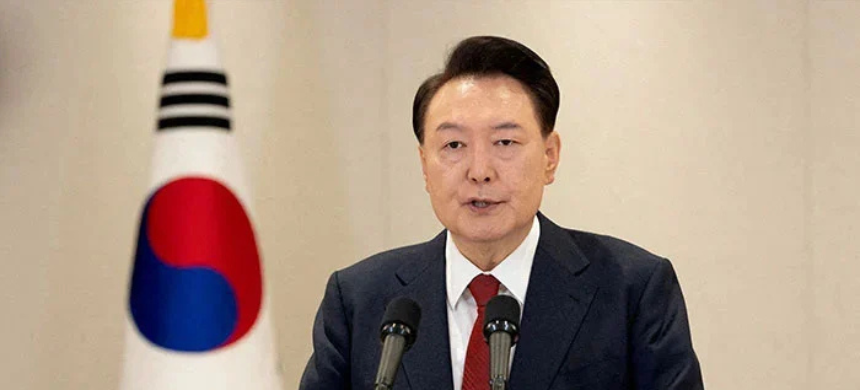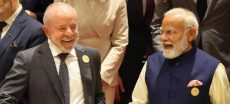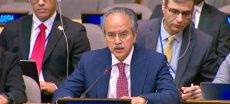Impeached South Korean President Yoon Suk-yeol Arrested on Insurrection Charges
Former South Korean President Yoon Suk-yeol was arrested on January 15 over accusations of insurrection related to his attempt to impose martial law last month. Authorities confirmed the arrest, with the Joint Investigation Headquarters executing an arrest warrant for Yoon at 10:33 AM local time (01:30 GMT).
Read More: Korean YouTuber Daud Kim Builds Mosque in South Korea
The arrest followed a dramatic standoff at Yoon’s residence, where investigators were initially blocked by the Presidential Security Service. To gain access, they had to scale the compound walls using ladders.
After his arrest, Yoon released a prerecorded video message claiming he had decided to submit to questioning to prevent “bloodshed.” While he acknowledged his disagreement with the legality of the investigation, Yoon expressed that his compliance was to avoid any “unfortunate bloodshed.”
Outside his residence, thousands of supporters gathered, and several lawmakers from Yoon’s conservative People Power Party, along with his legal team, attempted to prevent his detention. Yoon was escorted to the Corruption Investigation Office for High-Ranking Officials in Gwacheon, where he will face questioning.
The investigation office has the authority to hold Yoon for up to 48 hours, after which a decision will be made on whether to apply for a further detention warrant. This marks the second failed attempt by authorities to arrest Yoon. The first operation earlier this month ended in a standoff, after which the impeached president remained at his residence, avoiding arrest and skipping the opening of his impeachment trial on January 14.
Yoon’s impeachment followed his surprise late-night declaration of martial law on December 3, 2024, which was swiftly overturned by the National Assembly. On December 14, the legislature voted to impeach him, with the martial law episode serving as the catalyst for the political crisis.
The arrest of Yoon, who has been at odds with South Korea’s governing political establishment, marks a pivotal moment in the nation’s political history. The fallout from his martial law declaration continues to stir questions over executive powers and could reshape South Korea’s political future.











